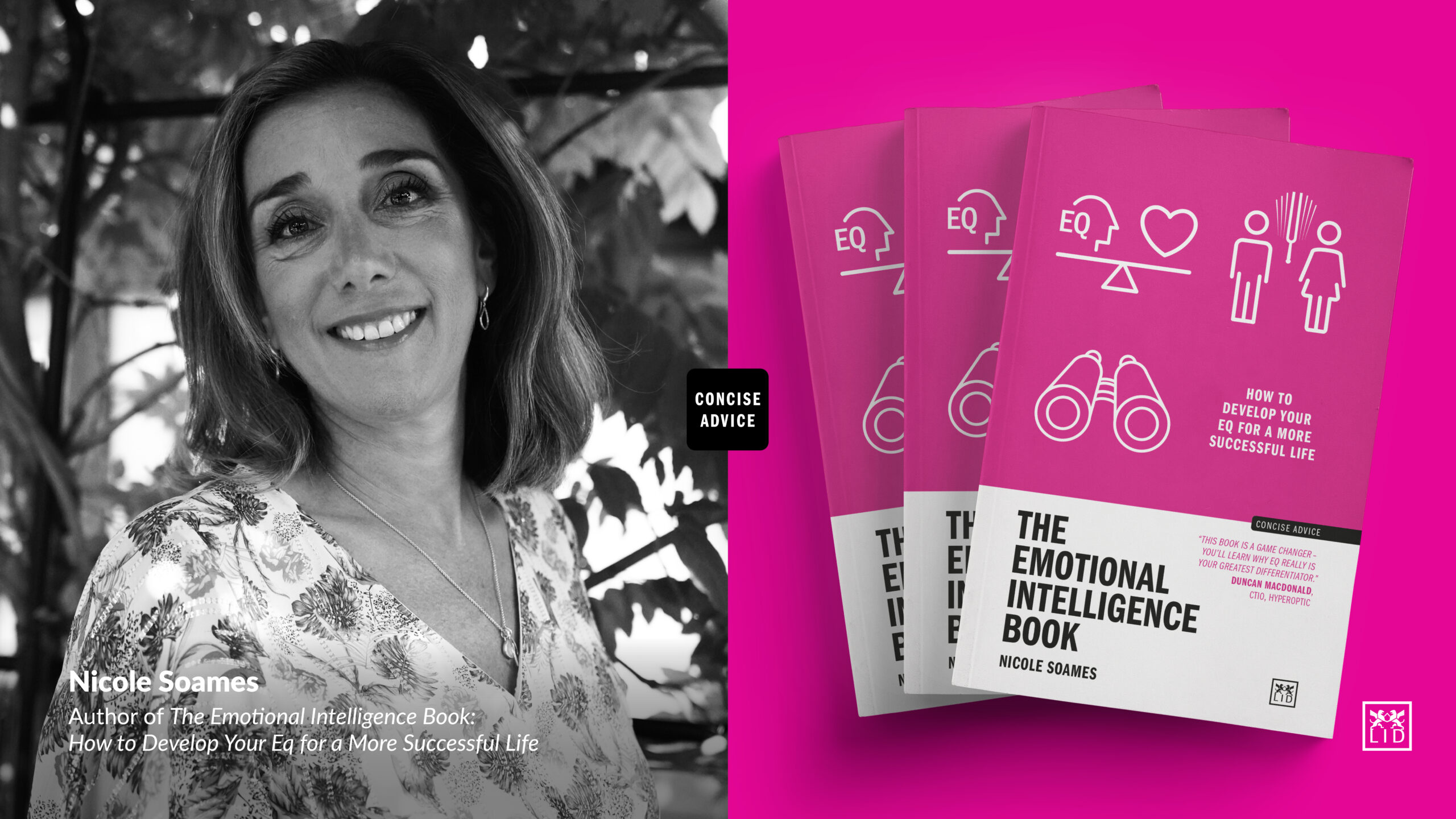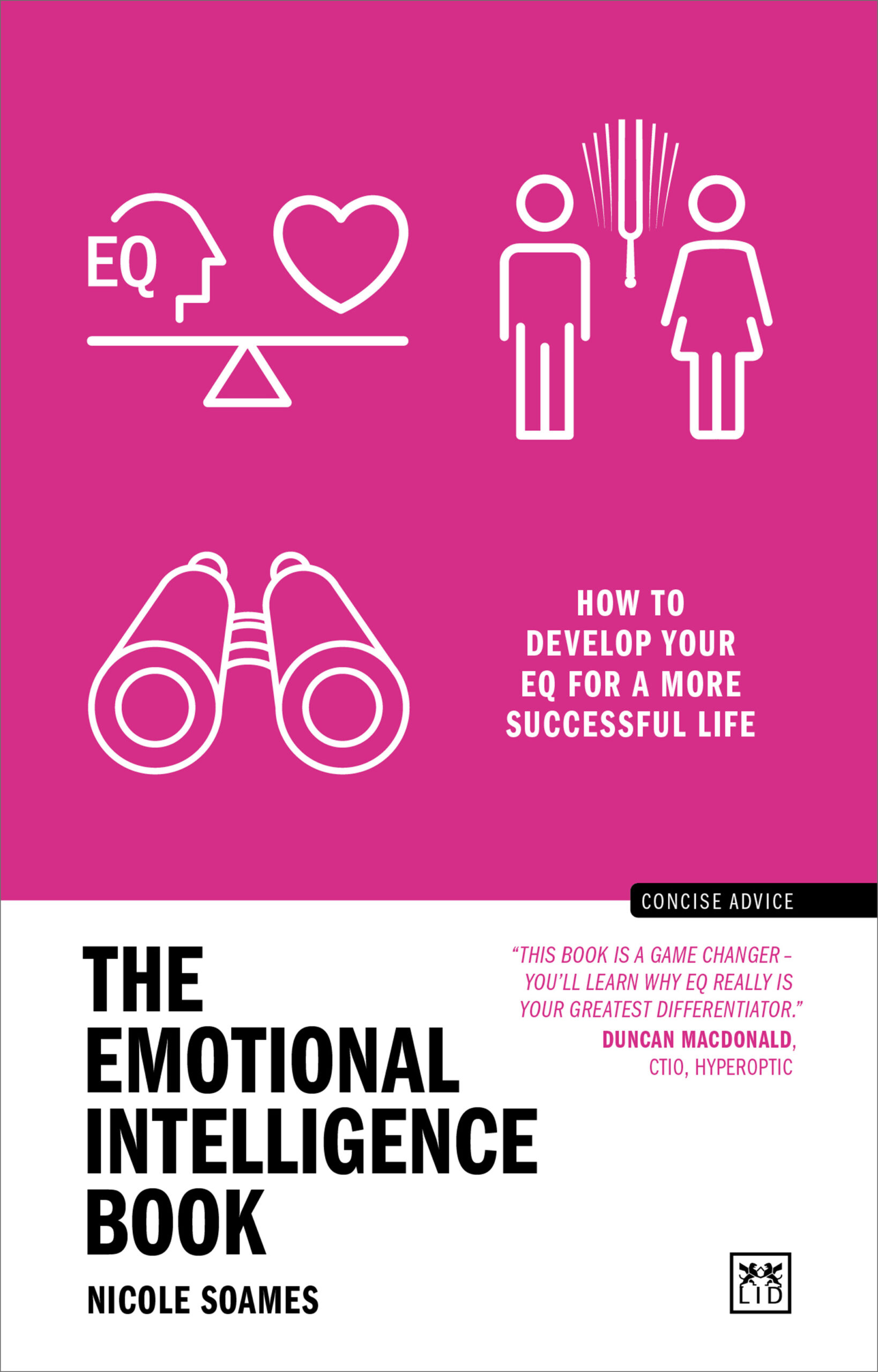|
Debunking The Myths About Emotional Intelligence with Nicole Soames
Debunking The Myths About Emotional Intelligence

By Guest Contributor Nicole Soames
Author of The Emotional Intelligence Book, Nicole Soames debunks the four most common myths about emotional intelligence.
Emotional Intelligence was first made popular in 1995 by psychologist Daniel Goleman in his book Emotional Intelligence. Goleman highlighted its importance when he said, “If your emotional abilities aren’t in hand, if you don’t have self-awareness, if you are not able to manage your distressing emotions, if you can’t have effective relationships, then no matter how smart you are, you are not going to get very far.” His research laid the foundation for much of the theory about emotional intelligence today. Since then, the concept of emotional intelligence has captured many people’s imagination. However, there are still misconceptions around its meaning. To understand emotional intelligence’s real impact, we need to debunk some of the most common myths about it.
Myth #1: You’re either born with emotional intelligence or you’re not
While some people have naturally higher levels of emotional intelligence than others, the great news is that unlike your IQ, which is fairly fixed from about the age of 17, your emotional intelligence can be developed over time. Our innate level of emotional intelligence gradually rises in our late teens, developing in our twenties and thirties before peaking in our mid-fifties – but these are the natural levels. By actively focusing on building your emotional intelligence as a skill set, you can increase it over time. It’s like a muscle – the more you use it, the stronger it will become.
Myth #2: Emotional intelligence is all about having empathy
There is a common misconception that developing your emotional intelligence is about being nice or showing empathy. While empathy is undoubtedly a key emotional intelligence skill, it is only one of many. It’s also important not to confuse empathy with sympathy. Empathy is about understanding what makes someone really tick, which is different from being ‘nice’ to someone. People often have tunnel vision when they think of emotional intelligence and focus purely on the relationship skills. In fact, skills such as self-control, self-reliance and self-actualization are just as important to achieving success in life.
Myth #3: Women are naturally better at emotional intelligence
Most people assume that women are more emotionally intelligent than men – probably because women are often better at sharing their emotions. While, as a woman, I would like to believe this, in fact women and men have equal levels of emotional intelligence. Research shows that in general, women do score higher in empathy than their male counterparts. However, the reverse is true when it comes to measuring self-reliance and straightforwardness, where men generally fare better. This is most likely explained by socialization and cultural influences as opposed to any innate differences in emotional intelligence.
Myth #4: Emotional intelligence is a set of ‘soft’ skills
So often the skills relating to emotional intelligence are mistakenly described as ‘soft.’ Perhaps this is because they are less tangible than other more easily measurable types of intellect or intelligence. However, emotional intelligence skills are some of the hardest to develop. This is because it takes ambition and commitment to take practical steps to change your behaviour. What makes it particularly challenging is that it involves other people. Not only do you need to manage your own emotions but you also have to constantly use your judgement and adaptability to respond to others live in the moment. No situation will ever be the same and this takes practice and hard work to master.
So what exactly is Emotional Intelligence?
Now that we’ve clarified what emotional intelligence isn’t, it’s time to delve deeper into exactly what we mean by the concept. Emotional intelligence is defined as a set of emotional and social skills that are most effective at influencing others. In other words, it’s the ability to recognize and manage your own emotions and those of others. Emotional intelligence is best described as a catalyst that will accelerate your success whatever your walk of life. Research carried out by the Carnegie Institute of Technology shows that 85% of your financial success is due to skills in ‘human engineering’ – your personality and your ability to communicate, negotiate and lead. Surprisingly, only 15% is due to technical knowledge or technical skills, highlighting the crucial role emotional intelligence plays in setting you up for success. Given these statistics, it’s not surprising that emotional intelligence has swiftly risen up the ranks of the most important skill that people can have.
ABOUT THE AUTHOR
Suggested Reading
 In this book, a leading EQ practitioner with more than 25 years commercial experience shows you how to develop your self-awareness, social skills, self-management and ambition in order to cope with and succeed in your work and career. The great news is that your EQ – unlike your IQ – is not fixed, it can be developed over time with a bit of guidance and practice. The Emotional Intelligence Book provides practical and authoritative advice on making a difference through EQ.
In this book, a leading EQ practitioner with more than 25 years commercial experience shows you how to develop your self-awareness, social skills, self-management and ambition in order to cope with and succeed in your work and career. The great news is that your EQ – unlike your IQ – is not fixed, it can be developed over time with a bit of guidance and practice. The Emotional Intelligence Book provides practical and authoritative advice on making a difference through EQ.

 Nicole Soames is an EQ qualified trainer, coach, and influencing specialist who has 25 years commercial experience developing tailored influencing training and coaching programmes for more than 85 different clients, in a broad range of industries, in over 12 countries. She is the author of The Influence Book, The Negotiation Book, The Coaching Book and The Presentation Book (all published by LID).
Nicole Soames is an EQ qualified trainer, coach, and influencing specialist who has 25 years commercial experience developing tailored influencing training and coaching programmes for more than 85 different clients, in a broad range of industries, in over 12 countries. She is the author of The Influence Book, The Negotiation Book, The Coaching Book and The Presentation Book (all published by LID).